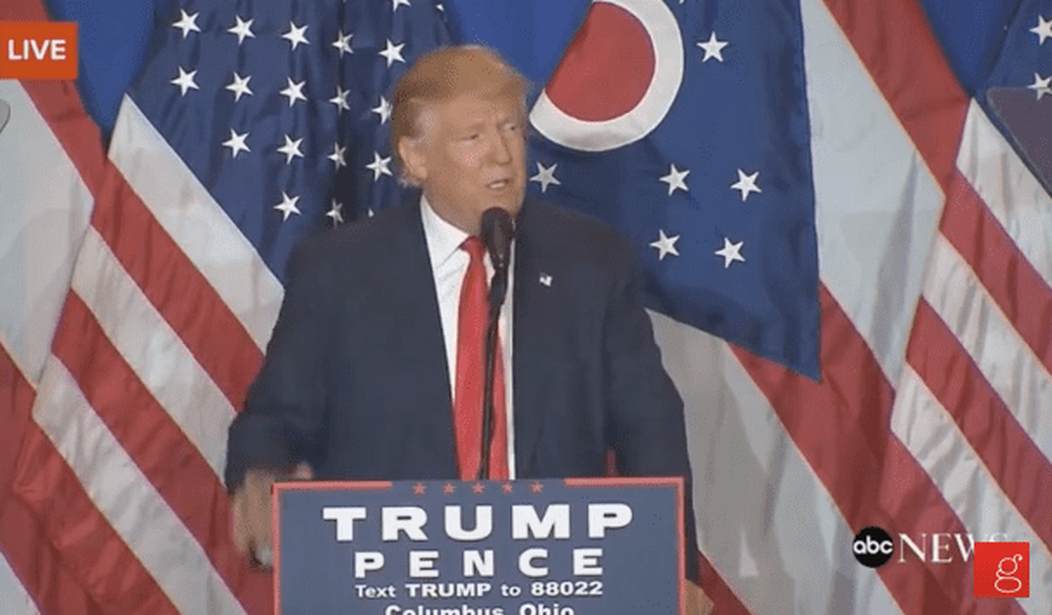North Korea reportedly conducted its fifth — and largest to date — nuclear test just hours after President Obama wrapped up a meeting with Asian allies in Laos.
Obama was due to arrive back at the White House from the ASEAN summit shortly after midnight Friday — which is North Korea’s National Day.
The U.S. Geological Survey detected a blast as powerful as a moderate earthquake at 9 a.m. Pyongyang time.
“Possible explosion, located near the location where North Korea has detonated nuclear explosions in the past,” the USGS said of the magnitude 5.3 event. “If this is indeed an explosion, the USGS National Earthquake Information Center cannot determine what type of explosion it may be, whether nuclear or any other possible type.”
North Korea said it conducted a “nuclear warhead explosion” in response to perceived U.S. hostility. “We sent out a message that if the enemies attack us, we can counterattack.”
South Korea’s Joint Chiefs of Staff called it “an artificial quake” that was detected near North Korea’s Punggye-ri nuclear test site.
Pyongyang previously held nuclear tests in 2006, 2009, 2011 and this past January, which was followed by a UN Security Council resolution in March. “We estimate the North has carried out the biggest-ever test,” the South Korea statement said.
“We are aware of seismic activity on the Korean Peninsula in the vicinity of a known North Korean nuclear test site,” National Security Council spokesman Ned Price said. “We are monitoring and continuing to assess the situation in close coordination with our regional partners.”
Yonhap news agency reported that South Korean lawmakers will convene for an emergency session today. “It would be a crucial violation of the U.N. Security Council resolution if it turns out to be an actual nuclear test,” Rep. Yeom Dong-yeol of South Korea’s ruling Saenuri Party said.
South Korean President Park Geun-hye condemned the test and called for “much stronger sanctions” along with utilizing “all possible means” to stop Kim Jong-un’s nuclear program. Without elaborating, Park’s office said she spoke with Obama about the test.
Last month, Japan’s Kyodo News reported that North Korea has openly restarted plutonium production and is on pace to produce highly enriched uranium for nuclear weapons “as scheduled.”
“We have reprocessed spent nuclear fuel rods removed from a graphite-moderated reactor,” North Korea’s Atomic Energy Institute said, a move in response to what Kim views as threats from Washington. Pyongyang hinted at the time of an upcoming nuclear test.
“North Korea’s reckless leader, Kim Jong Un, continues to test nuclear weapons and ballistic missiles, which poses a major threat to the United States and our allies around the world,” said Sen. Cory Gardner (R-Colo.), who introduced the North Korea Sanctions and Policy Enhancement Act that was signed by Obama in February. “North Korea’s belligerent behavior must be stopped; it’s imperative we drastically increase sanctions enforcement that my North Korea Sanctions and Policy Enhancement Act called for, including secondary sanctions against Chinese entities, additional sanctions on the regime’s human rights abuses, and cyber sanctions that the Obama administration has still not imposed.”
The senator, who chairs the Senate Foreign Relations Subcommittee on East Asia, the Pacific, and International Cybersecurity, said as North Korea’s nuclear arsenal and ballistic missile capabilities “rapidly develop, we must work closely with our allies to counter this aggression by expediting the timeframe for the stationing of the Terminal High Altitude Area Defense (THAAD) system in South Korea, and also enhance the trilateral alliance between the United States, Japan, and South Korea.”
“President Obama should immediately convene a trilateral summit to discuss the urgency of the North Korean threat and agree on policies that will protect our nations and together effectively deter Pyongyang’s aggression,” Gardner added. “While the administration has finally recognized its policy of ‘strategic patience’ has failed, we must continue to ratchet up pressure on Kim Jong Un’s regime and pursue all available options to counter this growing aggression.”
On Wednesday, Kim’s regime panned a UN Security Council statement condemning recent missile launches, calling it “an unacceptable act of violating our right to survival and sovereignty.”
“We will continue to expand our miraculous achievements in strengthening nuclear capabilities in a historical year that we opened with nuclear thunder of our first hydrogen bomb,” a spokesperson from the North’s Foreign Ministry told the official Korean Central News Agency.
Pyongyang also issued a new threat to South Korea on Friday, claiming a boat from South Korean Navy’s 2nd fleet crossed into their waters. “The puppet military gangsters of South Korea should not forget even for a moment that they will have to pay a dear price for their extremely adventurous military provocations,” KCNA reported.









Join the conversation as a VIP Member